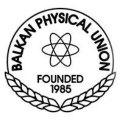Speaker
Description
First I shall discuss possibilities and choices after being awarded the bachelor’s, master’s and PhD degree in physics or applied physics. I shall talk about advantages and disadvantages of different career paths and illustrate the relationship between job security and personal freedom for the various categories. After giving tips on how to decide, I shall focus on a career in academia, where first step is a temporary job, namely becoming a postdoctoral research fellow. I shall discuss what a young researcher needs to achieve in her/his postdoctoral period and what consequently s/he has to consider in making his/her choice where to go (place, topic, type of supervisor,...).
After one or two postdoc appointments it will be time to go for the second step, a tenure track assistant professorship. Now not only the scientific productivity is an important criterion, but the selection committee will want to know about teaching experience, whether the candidate has been the daily supervisor of bachelor’s, master’s and PhD students and if s/he has ever attracted any funding, done any outreach or done anything to serve/influence the community in his/her field. They might also like it if the candidate has already been distinguished with a prize. I shall give tips on what a young researcher at the PhD and postdoc level can do to acquire experience and skills in all these areas.
For extra info I recommend three books:
“Survival Skills for Scientists” by Federico Rosei and Tudor Johnston
“A PhD is not enough” by Peter J. Feibelman if you want to spend part of your career in the USA.
“What is out there for me? The landscape of post-PhD career tracks” by Natalia Bielczyk discusses choices after the PhD
And a good guide for grant proposal writing:
“Art of Grantmanship” by Jack Kraicer, on https://www.hfsp.org/node/5761 gives an outline of what to do from 1 year before the deadline until the actual grant proposal submission

